Top Rankings
Wamego School District ranks among the top 20% of public school district in Kansas for:
Category
Attribute
Graduation Rate
Highest graduation rate (Top 5%)
Community Size
Largest student body (number of students) (Top 1%)
For the 2025 school year, there is 1 public preschool serving 394 students in Wamego School District.
Public Preschools in Wamego School District have a diversity score of 0.23, which is less than the Kansas public preschool average of 0.55.
Minority enrollment is 13% of the student body (majority Hispanic), which is less than the Kansas public preschool average of 36% (majority Hispanic).
Overview
This School District
This State (KS)
# Schools
5 Schools
563 Schools
# Students
1,659 Students
175,366 Students
# Teachers
129 Teachers
12,675 Teachers
Student : Teacher Ratio
13:1
13:1
District Rank
Wamego School District, which is ranked within the top 50% of all 286 school districts in Kansas (based off of combined math and reading proficiency testing data) for the 2021-2022 school year.
The school district's graduation rate of 95% has increased from 90-94% over five school years.
Overall District Rank
#79 out of 286 school districts
(Top 30%)
(Top 30%)
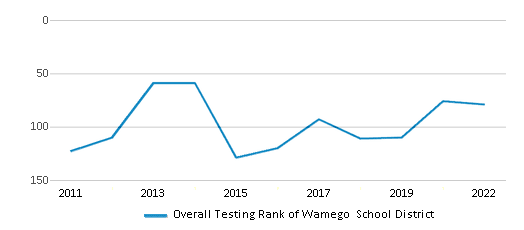
Math Test Scores (% Proficient)
33%
29%
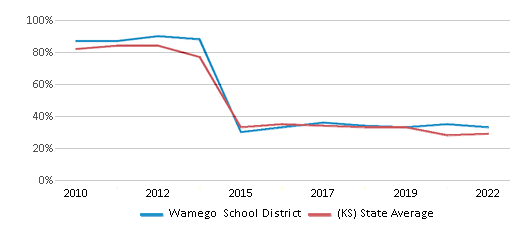
Reading/Language Arts Test Scores (% Proficient)
38%
32%
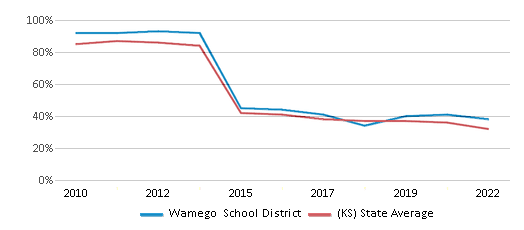
Science Test Scores (% Proficient)
35%
31%
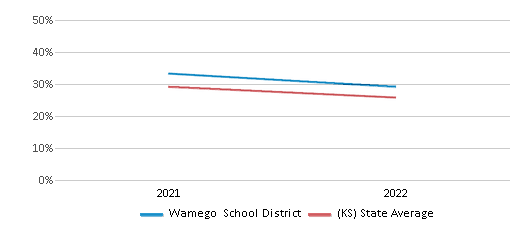
Graduation Rate
≥95%
89%
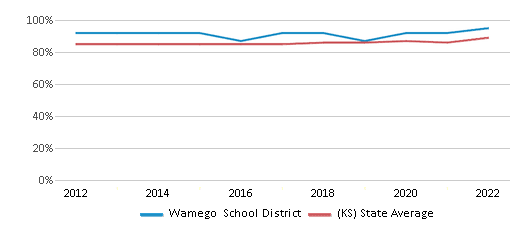
Students by Ethnicity:
Diversity Score
0.25
0.55
# American Indian Students
1 Student
1,258 Students
% American Indian Students
n/a
1%
# Asian Students
4 Students
3,742 Students
% Asian Students
n/a
2%
# Hispanic Students
108 Students
35,106 Students
% Hispanic Students
7%
20%
# Black Students
22 Students
10,873 Students
% Black Students
1%
6%
# White Students
1,428 Students
112,046 Students
% White Students
86%
64%
# Hawaiian Students
1 Student
394 Students
% Hawaiian Students
n/a
n/a
# Two or more races Students
95 Students
11,947 Students
% of Two or more races Students
6%
7%
Students by Grade:
# Students in PK Grade:
68
21,709
# Students in K Grade:
104
25,257
# Students in 1st Grade:
99
25,383
# Students in 2nd Grade:
123
25,757
# Students in 3rd Grade:
125
23,472
# Students in 4th Grade:
102
23,284
# Students in 5th Grade:
128
21,197
# Students in 6th Grade:
130
6,799
# Students in 7th Grade:
132
1,086
# Students in 8th Grade:
108
1,161
# Students in 9th Grade:
154
56
# Students in 10th Grade:
128
66
# Students in 11th Grade:
138
65
# Students in 12th Grade:
118
74
# Ungraded Students:
2
-
District Revenue and Spending
The revenue/student of $16,444 is higher than the state median of $16,276. The school district revenue/student has stayed relatively flat over four school years.
The school district's spending/student of $42,204 is higher than the state median of $17,192. The school district spending/student has stayed relatively flat over four school years.
Total Revenue
$27 MM
$7,774 MM
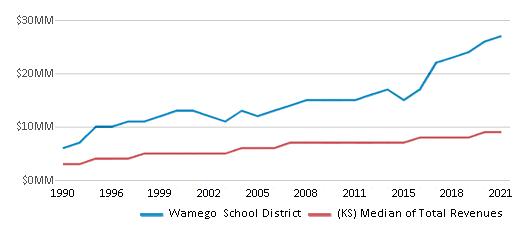
Spending
$70 MM
$8,211 MM
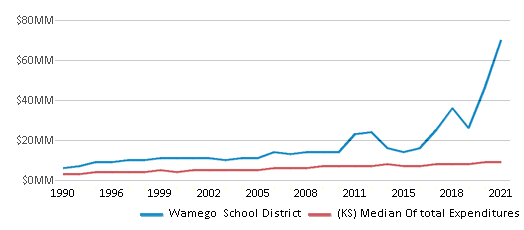
Revenue / Student
$16,444
$16,276
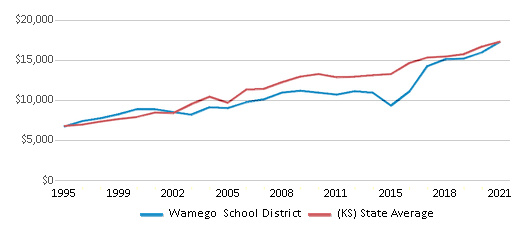
Spending / Student
$42,204
$17,192
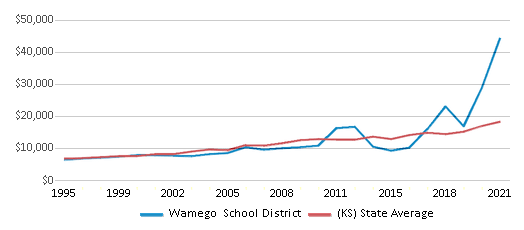
Best Wamego School District Public Preschools (2025)
School
(Math and Reading Proficiency)
(Math and Reading Proficiency)
Location
Grades
Students
Rank: n/an/a
900 7th Street
Wamego, KS 66547
(785) 456-7278
Wamego, KS 66547
(785) 456-7278
Grades: PK-2
| 394 students
Recent Articles

Sexual Harassment at Age 6: The Tale of a First Grade Suspension
A six-year old in Aurora, Colorado, was suspended after singing an LMFAO song to a little girl in his class and reportedly “shaking his booty.” We look at the case and the sexual harassment problem in public schools today.

How Scaffolding Could Change the Way Your Child Learns
This article explores the concept of instructional scaffolding, a teaching method that enhances learning by breaking down complex tasks into manageable parts. It highlights how scaffolding supports students in developing critical thinking skills and becoming more independent learners. The article discusses the benefits of scaffolding, including improved engagement and reduced anxiety, and provides strategies for its implementation across various educational levels.

February 05, 2025
Understanding the U.S. Department of Education: Structure, Impact, and EvolutionWe explore how the Department of Education shapes American education, from its cabinet-level leadership to its impact on millions of students, written for general audiences seeking clarity on this vital institution.





